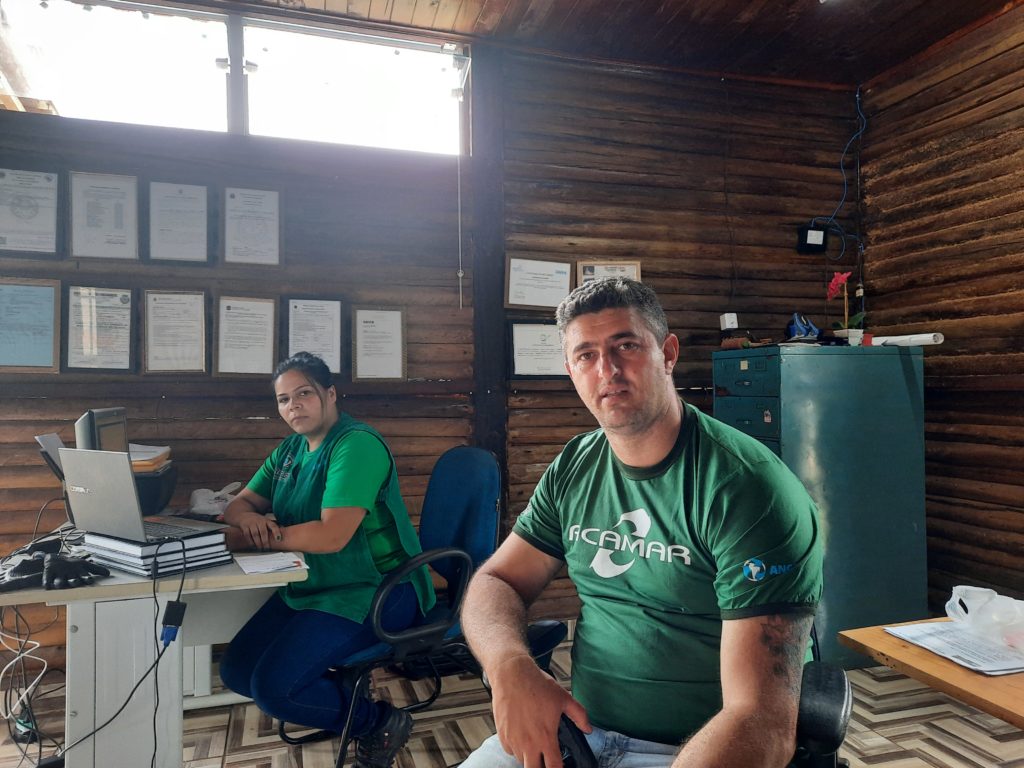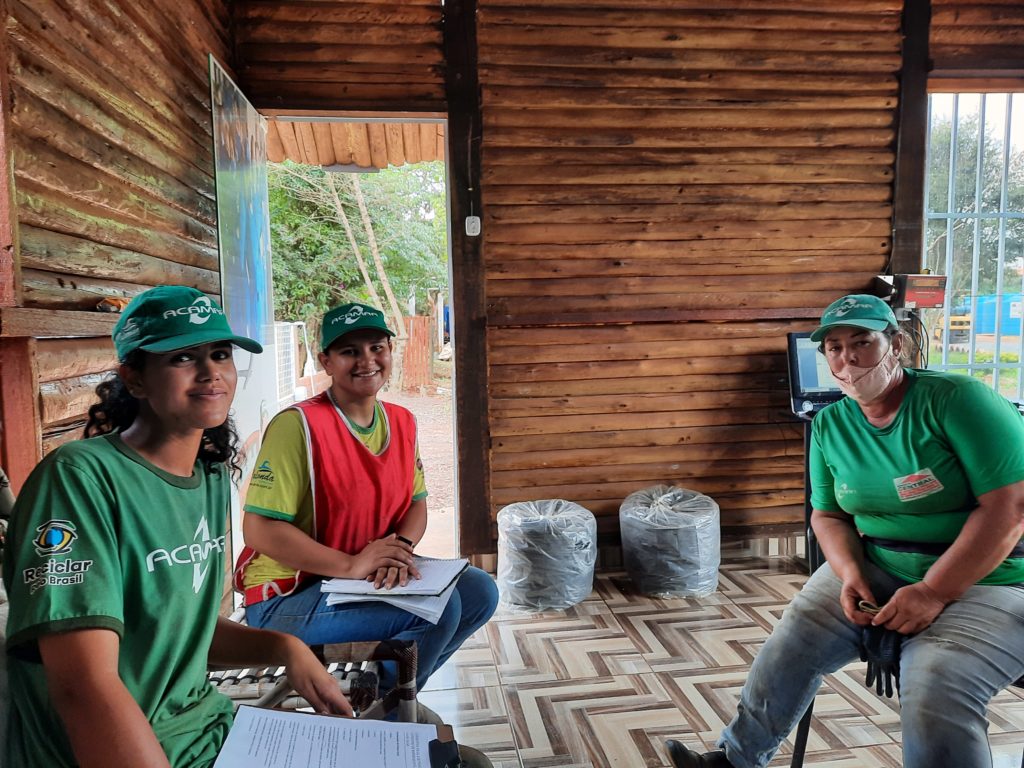ACAMAR is a waste picking cooperative participating in the Inclusive Waste Recycling Program (iWrc), founded by Mike Maggio, in which SAI is a partnering organization.
ACAMAR (Associação dos Catadores de Materiais Recicláveis de Capão Bonito, English: Association of Recyclable Material Collectors) is a waste recycling cooperative in Capão Bonito municipality in São Paulo, Brazil, one of a growing number of cities that offers recyclable waste collection. The cooperative “seeks the continuous improvement of [its] members and of the processes of collection and disposal of recyclable materials, with a focus on preserving the environment and improving the quality of life of the community,” (translated into English from Portuguese). In the beginning, people collected waste from a dumping ground near the neighborhood. With the idea of removing these people from that status, the Association started in 2000 and, in its early years, served the community with the support of the municipal government and fewer than 10 collectors, including Cristiano Ferreira, who collected waste from homes in the neighborhood.

After a major restructuring in 2016, ACAMAR has expanded to over 40 collectors, two more municipalities, and different types of waste disposal. The cooperative is also the only one in the Southwest of Brazil to have waste pickers recognized by the government as public service providers. About the success of the cooperative, Cristiano Ferreira, now President says, “We have a goal… of making ACAMAR, while I’m president, a reference cooperative in Brazil.” Their model effort over the last 22 years has led to positive impacts for their entire city.
Adopting a New System
ACAMAR began participating in the Inclusive Waste Recycling Consortium (iWrc) in 2021 after a visit from iWrc’s Brazil team gave the cooperative a method for properly disposing and recycling electronic materials. Like other recycling centers, ACAMAR depends on a model of reverse logistics, or moving goods from their typical final destination for the purpose of capturing value, or proper disposal. iWrc, which aims to advance the health and financial status of waste pickers, became a bridge to improve their waste disposal services. “We had a problem of environmental liabilities,” says Ferreira. “We had an entire electronics dismantling process, but we were leaving large liabilities,” (un-recycled material).
Through iWrc, they learned methods for disposing electronics properly, giving those materials a final destination. The changes helped the cooperative gain more value from the electronics they collected. “In addition to the value, we were able to sell the tubes (TVs), which until then had no [practical end] solution.”
In addition to seeing electronic waste properly recycled, iWrc also offered the cooperative a chance to implement systems and best practices that would benefit their cooperative members. As an iWrc implementing partner, SAI visits waste-picking cooperatives and helps to measure and improve their Social Fingerprint, covering issues such as health and safety, wages and hours, and protections against forced and child labor.
iWrc also helps them prioritize areas for improvement, develop an improvement plan, and implement management systems through targeted training and capacity building. Social Fingerprint has helped ACAMAR improve their understanding of socially responsible practices and provided them with a concrete method of documenting and improving their social performance. This, in addition to an internal Social Performance Team (SPT), which includes waste picker representatives, are always at their disposal to help manage improvements and solve problems that may arise.
Improving their Social Fingerprint
While iWrc has helped ACAMAR understand and implement good practices for their waste picker members, their journey has not been without challenges. For example, they found there was a significant learning curve after adding a new grievance mechanism. According to SPT member, Brenda Macedo de Paula, the suggestion box was very difficult to manage in the beginning. “We understood the need, but also, we noticed, that many people come with complaints that are superfluous,” she says. “Now we are trying to respond to all requests from the staff, in the fairest, clearest way, so that they understand… the real meaning of having a suggestion box, which is precisely to improve our procedures.”

Ultimately, addressing the criticisms from cooperative members and educating them about “the real meaning of the suggestion box” has helped them both improve their procedures and adapt to a new method. “I think it’s very important, where we end up learning more about the human being and respecting each other’s space,” says Ana, another SPT member. “To be a reference, you have to follow some norms, some rules, you know, and adapt to the legislation,” says Ferreira. “We know that it is necessary, and we end up doing it, not because [we like] it but because it is necessary [to be successful].”
Though they can be challenging to implement, these procedures end up benefitting how their business is done. “We need to have these procedures in place so that people understand what it’s like to work in… not just companies, but in cooperatives,” says Macedo de Paula. “It also helps in the development of these people.” ACAMAR and other cooperatives that participate in iWrc have demonstrated how developing a resilient workforce and sustainable systems internally helps create more systems that are resilient and a more sustainable world outside their communities.
For more information about iWrc, please contact Christie Daly at cdaly@sa-intl.org.
